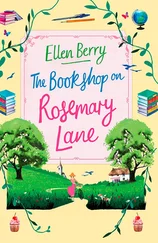Ellen Block - The Language of Sand
Здесь есть возможность читать онлайн «Ellen Block - The Language of Sand» весь текст электронной книги совершенно бесплатно (целиком полную версию без сокращений). В некоторых случаях можно слушать аудио, скачать через торрент в формате fb2 и присутствует краткое содержание. Жанр: Старинная литература, на английском языке. Описание произведения, (предисловие) а так же отзывы посетителей доступны на портале библиотеки ЛибКат.
- Название:The Language of Sand
- Автор:
- Жанр:
- Год:неизвестен
- ISBN:нет данных
- Рейтинг книги:4 / 5. Голосов: 1
-
Избранное:Добавить в избранное
- Отзывы:
-
Ваша оценка:
- 80
- 1
- 2
- 3
- 4
- 5
The Language of Sand: краткое содержание, описание и аннотация
Предлагаем к чтению аннотацию, описание, краткое содержание или предисловие (зависит от того, что написал сам автор книги «The Language of Sand»). Если вы не нашли необходимую информацию о книге — напишите в комментариях, мы постараемся отыскать её.
The Language of Sand — читать онлайн бесплатно полную книгу (весь текст) целиком
Ниже представлен текст книги, разбитый по страницам. Система сохранения места последней прочитанной страницы, позволяет с удобством читать онлайн бесплатно книгу «The Language of Sand», без необходимости каждый раз заново искать на чём Вы остановились. Поставьте закладку, и сможете в любой момент перейти на страницу, на которой закончили чтение.
Интервал:
Закладка:
Abigail slid her sneakers on in lieu of slippers and made the bed.
“What an attractive sight you must be. Bleary-eyed in pajamas, two sweaters, and a pair of tennis shoes. Thank your stars there isn’t a full-length mirror here.”
As she tucked in the sheets and straightened the quilt, it struck her that she didn’t have to make the bed or look presentable. She lived alone now. There was nobody to see her. What she did need to concern herself with was the lighthouse and the slew of duties that came with it.
Two weeks after being released from the hospital, Abigail had searched out Lottie’s real estate agency and consented to lease the caretaker’s cottage before Lottie even faxed her a photo. It was easily the most impetuous act of Abigail’s life, one she was second-guessing.
She poked her head into the hall, praying that the bathroom light wouldn’t be on.
It wasn’t.
Warily, she made the rounds of the second floor, on alert for the slightest difference. Her contacts case sat beside the faucet in the bathroom, unmoved. Mounds of books lay on the desk in the study, her shelving effort cut short. She questioned whether or not she’d imagined the noise last evening.
“There’s only one way to find out.”
The trip to the lighthouse turret went faster this morning than it had the previous day. Abigail was less circumspect, though just slightly. She noted the numbers of the squeaky steps from memory.
“Sixty-seven…seventy-one…seventy-nine.”
That small practice comforted her. She preferred knowing what to expect. Upon reaching the lamp room, Abigail steeled herself for what she might see.
The oil pail appeared to be right where she’d left it.
Because she’d righted the pail after stumbling on it, Abigail couldn’t tell if it was in exactly the same spot as before. She wanted to be certain. The rim of the pail was squared with a plaque soldered onto the base of the light. Rusted over, the plaque was illegible except for the year inscribed at the bottom—1893, the date the lighthouse was erected. Abigail took a mental picture of the pail’s placement, then nudged it away from the lamp base with the toe of her tennis shoe, so the pail no longer touched any part of the plaque.
“This is merely a test, a test to see if…I’ve lost my marbles or not.”
She hoped she would pass.
Abigail wound her way down the spiral staircase. From the bottom, she stared upward at the lamp room, the mesh ironwork a sieve for the sun’s gauzy rays. Maybe what had happened the night before was a fluke. Maybe it wouldn’t happen again. The word maybe meant that something was possible or probable yet uncertain. It was the uncertainty that got under her skin.

The sight of the kitchen in the bright morning light was sobering. Seeing the room in glaring clarity made her want to go back to bed. It was clean, but with the splotchy walls and slumping cupboards, it wasn’t pretty.
“Caffeine might make this more tolerable.”
She set the kettle on the stove to boil water for tea, but the burner wouldn’t light. She could hear the gas hissing. The pilot light was out.
“Great.”
Relighting a gas burner was a household chore Abigail always abhorred. Vacuuming couldn’t hurt you. Neither could scrubbing the bathtub. Or waxing the floors. Once she’d waved clear the gas that had wafted into the air, Abigail struck a match. The gas instantly snatched the flame, sending her backpedaling. She doubted she would ever become accustomed to the fright that leapt through her as the match caught fire. Yet here in the caretaker’s cottage, she would have to face that fear again and again, whether she was accustomed to it or not.
Abigail let the water come to a boil, pulling the teapot off the burner before it could whistle, a habit she’d adopted from living with Paul. For years she’d risen a half hour earlier than he did and conducted her morning routine in silence, careful not to wake him. She would shower, then make toast and tea, taking the kettle from the stove at just the right moment to prevent it from blowing. That was no longer necessary. She could allow the teapot to whistle if she pleased. Or she could leave the bed unmade or her hair unbrushed. There were a lot of things Abigail could do but ultimately wouldn’t. She hadn’t lived alone since college, but now that she was by herself, Abigail wondered if, in time, her routines from when she was a wife and mother would disintegrate and morph into new habits. Single-person habits. Maybe they already were.
Two botched attempts at making toast in the oven made Abigail give up. Both times the bread turned coal black despite the temperature setting. As with the rest of the lighthouse, the stove had its own fussy personality, to which she’d have to acclimate.
Breakfast was a yogurt. Afterward, she busied herself by taking out the trash and tidying where she could until it was late enough to go into town to the hardware store.
“No small talk this time. No chitchat. No tall tales. Supplies and that’s it.”

Finding a parking spot in the town square was about as difficult as finding hay in a haystack. There were more parking spaces than people. Abigail chose the same spot from the prior day, for no reason other than that it was familiar.
It was after ten, and the front door to Island Hardware was locked tight. She went around to the rear. Merle was sitting at a picnic table, gutting a large fish.
“Morning. It’s, um, Abigail Harker. From yesterday.”
“Morning, Abby.”
That name again.
She gritted her teeth into a smile. “Yes, it’s me.”
Merle was carving out the fish’s innards with a curved knife and flicking them into the grass. “She’s a beauty, ain’t she?” he said, cracking his catch open like a magazine. “Eight-and-a-quarter-pound Southern flounder. Got some hogchokers and whiffs too. This was the pick of the litter.”
“Not to be rude, but is there something wrong with your fish?”
Amazingly, its eyes were on the same side of its head, so when Merle flipped it, one side was blank except for gills and a crescent of mouth.
Her remark gave Merle a chuckle. “Flounder are in the flatfish family,” he explained. “They have real lean, compressed bodies and they swim on their sides, so their eyes are on the side that faces upward. That side’s usually dark and the underside’s white. Some are left-eyed, meaning their left side faces up. Others are right-eyed.”
“Any particular reason for that evolutionary quirk?”
“Dunno. Maybe it’s the same as some people being right-handed and some being lefties. That’s how nature created them.”
This was the sort of statement Paul might have made, boiling down the vast peculiarity of the universe to a plain, blunt fact, incontrovertible simply because that was the way it was.
“Well, I’m here because I’d like to buy some things from your store. Primer, sandpaper, brushes.”
“Please don’t tell me you’re—”
“Painting? That’s precisely what I’m going to do.”
“Can’t say I’d recommend it.”
“Merle, the house is a disaster. Everything’s falling apart. It looks terrible. How am I supposed to live like that?”
“Disaster? Don’t you think that’s a smidge harsh?”
“The place hasn’t seen a scrub brush or a paintbrush since the hippie split.”
“I’ll admit the interior needs improvement. That said, allow me to propose two reasons why it might not be wise for you to paint. First, you’re not allowed to. Says so in your lease. Second, what if Mr. Jasper doesn’t take kindly to you messing with his lighthouse?”
Читать дальшеИнтервал:
Закладка:
Похожие книги на «The Language of Sand»
Представляем Вашему вниманию похожие книги на «The Language of Sand» списком для выбора. Мы отобрали схожую по названию и смыслу литературу в надежде предоставить читателям больше вариантов отыскать новые, интересные, ещё непрочитанные произведения.
Обсуждение, отзывы о книге «The Language of Sand» и просто собственные мнения читателей. Оставьте ваши комментарии, напишите, что Вы думаете о произведении, его смысле или главных героях. Укажите что конкретно понравилось, а что нет, и почему Вы так считаете.












